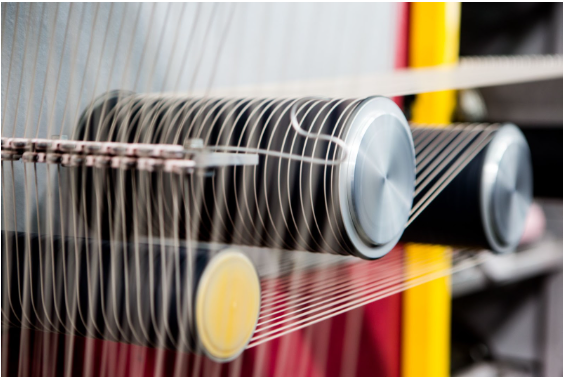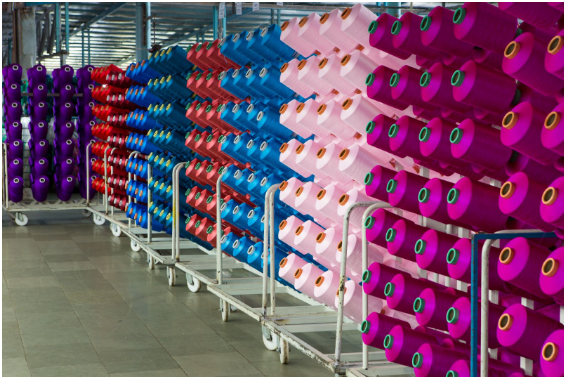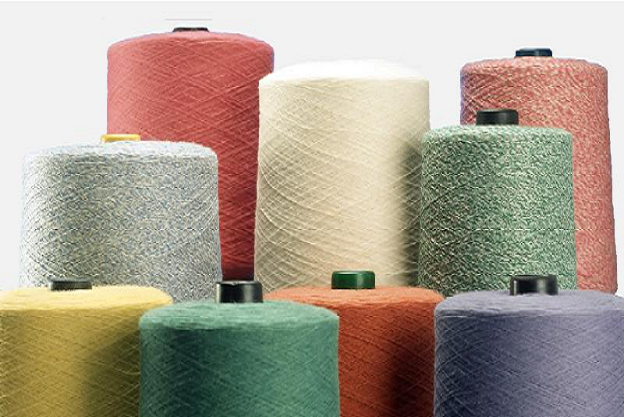Nylon, a versatile synthetic polymer, has found its way into virtually every aspect of human life, from clothing and accessories to industrial applications. Its robustness, durability, and versatility have made it a cornerstone material across various sectors and daily affairs. However, the traditional manufacturing process of Nylon, which heavily relies on petroleum, has raised significant environmental concerns.
This process contributes to pollution, greenhouse gas emissions, and depletion of natural resources, highlighting the urgent need for sustainable alternatives. Recognising this challenge, AYM Syntex, a leading manufacturer of yarns, has taken proactive measures to address the environmental impact of Nylon production. Our Recycled Nylon Yarn called Nycycle contributes to a more sustainable and eco-friendly approach to manufacturing this essential material.
What is Recycled Nylon?
Recycled Nylon, also known as eco-nylon or regenerated nylon, is a type of nylon that is produced by reusing pre-consumer, post-consumer, or post-industrial nylon waste materials. This process involves collecting nylon fabric scraps, discarded carpets, and other nylon-based products. They undergo a breakdown process, leading to the production of fresh recycled chips. Subsequently, the material is re-spun to create new yarns. AYM Syntex has effectively reduced the demand for new raw materials and lessened the strain on natural resources, by developing the new sustainable product called ‘Nycycle’, using post-industrial Nylon 6 waste.
Advantages of Recycled Nylon Yarn on Environment
Nycycle, apart from being a quality yarn with the excellent colour fastness and impressive durability, offers many benefits to the environment.
1. Recycled Nylon Yarn Reduces the Waste in Landfills and Oceans
By reusing discarded nylon materials for recycled nylon production, there is a significant positive effect on waste management and the environment. Without proper recycling, large amounts of nylon waste would end up in landfills or oceans, harming ecosystems and wildlife.
Our initiatives have not only reduced the accumulation of non-biodegradable waste in landfills but have also helped prevent the contamination of oceans, safeguarding marine life and aquatic ecosystems from the harmful effects of marine pollution.
2. Recycled Nylon Requires Less Energy and Resources for Production
The considerable reduction in energy and resource consumption during the production of Nycyle compared to traditional manufacturing processes represents a pivotal step towards sustainable textile production. AYM Syntex’s innovative methodologies have not only resulted in the efficient utilisation of existing nylon waste but have also curbed the demand for new raw materials.
This concerted effort to minimise resource consumption not only reflects a commitment to sustainable practices but also highlights the company’s dedication to fostering a more eco-friendly and resource-efficient approach to textile manufacturing.
3. Less Energy Equals to Reduced Carbon Footprint
Nycycle’s production process stands as a strong contender in the battle against climate change, as it significantly reduces the emission of greenhouse gases and reduces the reliance on finite fossil fuel resources. AYM Syntex’s steadfast commitment to sustainable practices has been instrumental in fostering an environmentally friendly textile industry.
By implementing innovative techniques that prioritise the use of recycled materials, we have effectively lowered the carbon footprint associated with nylon production, setting an example for other industry players to follow suit. By reducing the dependency on fossil fuels and minimising greenhouse gas emissions, our efforts are actively contributing to the global fight against climate change and environmental degradation.
Also Read : How to Choose the Right Recycled Polyester Yarn for Your Project
Conclusion
Nycycle stands as a promising solution to mitigate the environmental impact of conventional nylon production. AYM Syntex’s dedication to producing eco-friendly nylon yarns signifies a significant step towards a more sustainable and responsible approach to manufacturing. As the world continues to prioritise environmental conservation and sustainability, we hope to contribute as much as possible to the fight against climate change.




